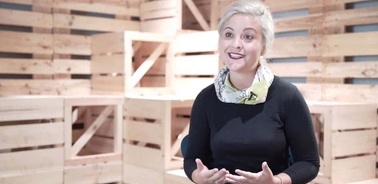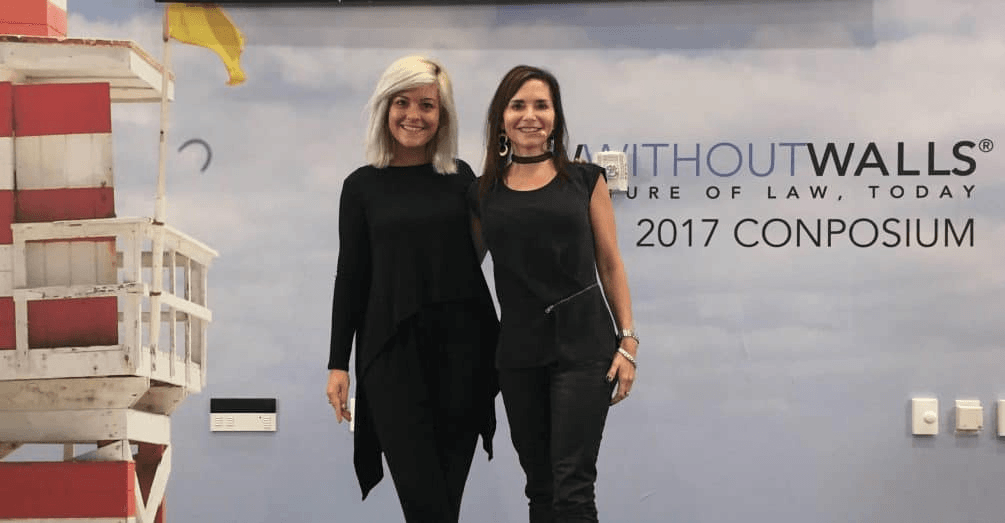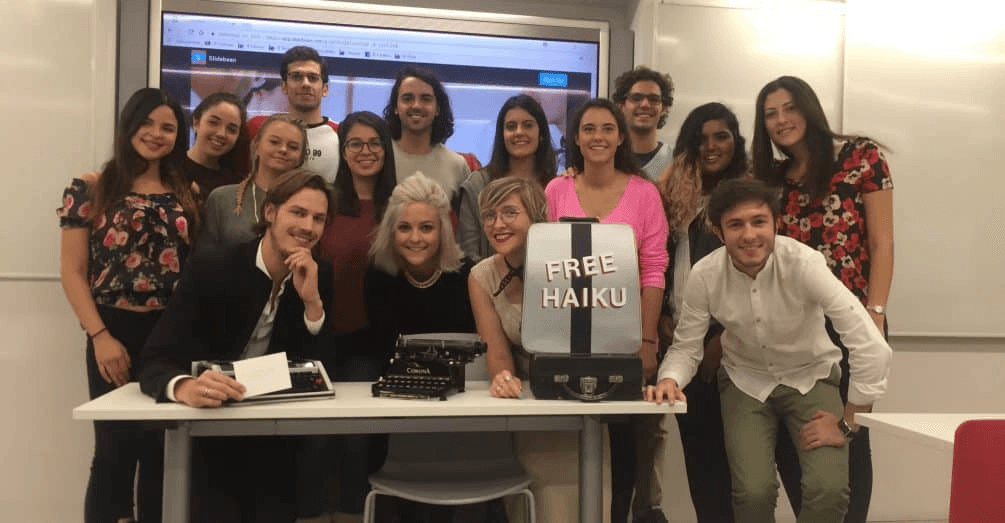- Home
- We Are Law School
- News
- Erika Pagano: “my Greatest Joy Is Seeing Students Realize Their Full Potential”
Erika Pagano: “My greatest joy is seeing students realize their full potential”

Erika Pagano, Director of LawWithoutWalls, studies the impact of creativity and technology in the changing legal landscape. In this interview, she shares her invigorating thoughts on the future of law and the importance of empowering today’s law students with creativity and twenty-first century professional skills — skills that, in Erika's words, "make or break a deal".
Erika Pagano, Director of LawWithoutWalls, lecturer in law at the University of Miami and Guest Professor at IE, is a lawyer, innovator, and educator working at the intersection of law, technology, creativity, and business. Erika is a global and passionate professional who explores the future of the legal profession, legal services, and legal education through collaboration across cultures, generations, and sectors and she does it through LWOW.
“LWOW was designed to transform the way that students, lawyers and business professionals around the globe partner to collaborate and problem solve. Our mission is threefold, to train new law and business talent, to transform the way that current lawyers and business professionals are working, and to create implementable solutions at the intersection of law, business, and technology that reinvigorate the legal market”, explained Erika.
IE has participated in LWOW for the last seven years hosting two kickoffs, one in Segovia in 2013 and one in Madrid in 2016. In the past years, our students won first prices at LWOW.
This year, we decided to go a step further and incorporate a blended elective where all LL.B. students have the opportunity to learn the essence and benefit from the LWOW experience, which we believe is not only necessary but also empowering and rewarding at every level. Erika gave this unique workshop focused on innovation, technology and the legal profession to IE students.
“The workshop incorporates a lot of the skill building we do at LWOW, focusing on project management, teamwork, cultural competencies, leadership skills, communication, presentation skills, how to incorporate creativity in this new legal landscape. It´s fascinating, it´s very hands-on, it´s intensive, it´s invigorating, it´s a lot of hard-work and its super rewarding”, she said.
“I am so impressed by how high IE students set the bar. They are not only living, walking and breathing examples of cultural competency, of what students and the profession of tomorrow is going to look like, but they are just beyond hard working, super creative and a delight to work with as a professor and professional”
Why is LWOW so important in the training of future lawyers?
The vision and mission of LWOW are critical to the training of future lawyers. Although we may not know exactly what the legal market might look like and how legal services will be delivered, we do know the skills that are essential for tomorrow’s lawyers to succeed—as professionals, as individuals, as collaborators, and as people who play a key role in society. We call them twenty-first century professional skills, including project management, leadership, cultural competency, networking, business skills, communication, presentation delivery, and more. These are generally not taught in law school; however, they’re skills that make or break a deal. LWOW was designed so that future and current lawyers can hone and master these skills in an experiential, intensive, global, and multidisciplinary environment.
 Michele DeStefano, founder of LawWithoutWalls, and Erika Pagano
Michele DeStefano, founder of LawWithoutWalls, and Erika PaganoWhy is creativity important in the training of tomorrows lawyers?
Creativity is certainly key! I get very frustrated with the notion that lawyers aren’t creative—we are very creative, and when that creativity is nurtured, encouraged, and employed, the value we contribute to organizations and clients is exponential. My greatest joy is seeing students realize their full potential. For many, LWOW is the first time they’ve been given the opportunity to engage their creative ability in a professional context. This is often accompanied by the mastery of new tools and technologies, many of which were previously thought of as unapproachable or unfit for integration into the legal experience.The resulting rise in self-confidence, self-discovery, and self-esteem creates more competent, capable, and content professionals. This is what we want for the future of our profession!
What is the biggest gap between the new generation of lawyers, technology and how the law is taught?
So, as a millennial lawyer, I occupy a unique space between most legal academics (Boomers, Gen X) and today’s students (digital natives). Although today’s students are arguably more fluent and comfortable with technology, there’s still a certain disconnect between how legal education is taught and how our students are learning; that is, technology may be used in the classroom, but it’s often not used in the most effective way possible for any party involved (professors and students). Further, there’s a discomfort among students with using tools and technologies common outside the legal classroom in a legal context, which may be the result of a lack of encouragement or a lack of opportunity. These gaps are so exciting to explore and bridge.
"As for the development of our future lawyers, mastery of twenty-first century professional skills will remain critical to professional success, whether the student chooses to practice in a traditional setting or create a game-changing technology with the power to transform the world"
What does innovation and LWOW mean to you?
Innovation in the legal industry means opportunity—opportunity for jobs, opportunity for good, opportunity for change, opportunity for growth, and countless other opportunities we don’t yet know exist. Isn’t that exciting? I’m a product of LWOW myself, and came to the program as a second-year JD student who was frustrated with the divide between the skills I thought made me a valuable asset to the industry and the skills being developed and rewarded in traditional legal education. While substance is and will always remain at the core of legal education, I wondered how things could be done differently, why they weren’t, and who might be willing to take a risk and make change a reality. Luckily, I found the support of Michele DeStefano (Professor, Miami Law), Trish White (Dean, Miami Law), Soledad Atienza (Dean, IE University), and others, who gave me an opportunity and platform very early on in my career. In fact, in my third and final year of law school, I set a goal to one day teach at IE—and now, that dream has come true. I’m so humbled and happy.
 Haiku Guys and Gals at IE University sharing their vision and insights on communication and creative skills
Haiku Guys and Gals at IE University sharing their vision and insights on communication and creative skillsHow do you envision the future of law?
I’m incredibly optimistic about the future of law. Many legal jobs that exist today simply didn’t five, ten, or fifteen years ago. The same goes for legal tools and technologies. General trends, like globalization and the rise of technology, will continue to influence demand and delivery. As for the development of our future lawyers, mastery of twenty-first century professional skills will remain critical to professional success, whether the student chooses to practice in a traditional setting or create a game-changing technology with the power to transform the world. Institutions like IE play a significant role in fostering a culture where tomorrow’s leaders can begin to understand, harness, and capitalize on their fullest potential.